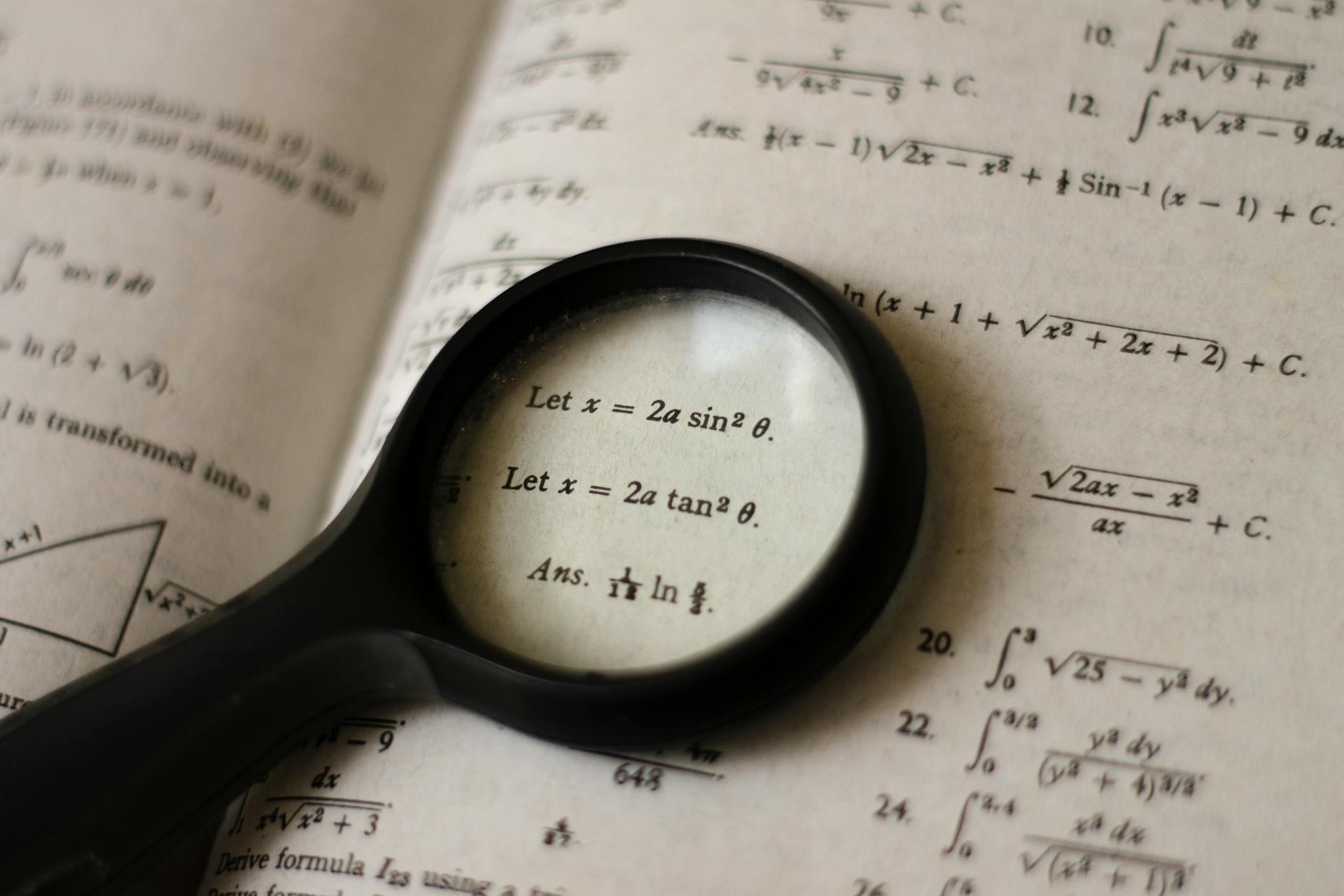Mathematics is a fundamental subject every student faces again and again from elementary school all the way through high school and college. Some students love it, pursuing degrees that require a comprehensive understanding of the subject on many levels. Some tolerate it, passing their classes with occasional difficulties while pursuing non-math-related subjects.
And, a large portion of students hate math. Even if they enjoy certain types of math, algebra is one branch of mathematics that can confound students who are confident in other types of math-related subjects like trigonometry, geometry, and statistics.
Since most students are exposed to (and perhaps struggled with) Algebra I and Algebra II while in high school, thinking about what a college-level algebra class might be like can be daunting.
Here, you’ll find out what to expect in a typical college algebra class as well as techniques for understanding the material and passing the course. Once you’ve done this, unless your major requires more math, you’re home-free and may not need to study algebra ever again!

What Is Algebra and What Are the Different Levels?
Algebra as a whole is a branch of mathematics that uses arithmetic, variables, and algebraic operations and expressions. There are several types of algebra, which are generally categorized as elementary, linear, abstract, and universal.
The level of algebra taught in schools is split up by what concepts different age levels can typically understand. Since our brains are still in a state of development in our middle, high school, and college days, it can be difficult for most kids to wrap their heads around algebra until their brain hits a certain level of development and everything just “clicks.”
For this reason, algebra is typically split up into several levels here in the US. Here are the types of algebra typically present in the education system across the states:
| Grade Level | Type of Algebra Typically Taught |
|---|---|
| 6th to 9th | Pre-Algebra |
| 8th to 10th | Algebra I / Elementary Algebra |
| 10th to 12th | Algebra II / Intermediate Algebra and Advanced Algebra |
| College (for non-STEM students): | College Algebra / Algebra 2 / Advanced Algebra |
| College (for STEM students): | Liner Algebra, Abstract Algebra, Universal Algebraic Concepts |
But what does each level of algebra actually consist of?
Pre-Algebra
Students begin to learn algebra in basic terms. They are introduced to real numbers and basic number theory, fundamental topics for algebra, simple algebra, and some geometry and trigonometry.
Key topics:
- Prime numbers
- Prime factorization
- Order of Operations (PEMDAS)
- Ratios and Percentages
- Powers
- Roots
- Graphing
- Variables
- Expressions
- Scientific Notation
- Quadrilaterals
- Polygons
- Pythagorean Theorem
- Surface Area
- Equations of a Line
- Planes
Algebra I
This class acts as a prerequisite by building a foundation for students to go on and take more comprehensive geometry, trigonometry, and algebra classes as well as calculus.
It is also known as elementary algebra, school algebra, or classical algebra. In this case, “elementary” means “simple,” as opposed to "complex."
Key topics:
- Functions
- Linear Equations
- Inequalities
- Graphs
- Graphing Functions
- Polynomials
- Factor Theorem
- Radicals
- Exponents
- Rational Numbers
- Complex Numbers
- Quadratic Equations
- Power Functions
- Algebraic Properties (ex: commutative property, associative property, etc)
- Permutations

Algebra II
An extension of Algebra I, much of Algebra II is intended to reinforce what students learned in Algebra I (which typically happens in a previous term or semester, so students need to brush up on these topics before proceeding to new ones).
The class is intended to allow students to go right into calculus either in high school or college. It’s meant to give students the background knowledge they need to begin tackling more complex math. For students going into STEM, it’s a great boon to their education if they can begin their college career in calculus or a higher type of math rather than spend a year catching up to their STEM peers.
Is Algebra 2 hard? Many students struggle with this part of algebra because it introduces more abstract concepts. Know you’re not alone if you’re having a hard time!
Key topics:
- Everything from Algebra I
- Logarithms
- Vectors
- Inverse Operations
- Relations
- Products (dot product, cross product, etc)
- Systems of Linear Equations
- Matrices / Matrix Multiplication
- Radians
- Sine, Cosine, Tangent
- Conic Sections
- Geometric and Trigonometric Functions
- Surds
- Rationalizations
College Algebra
How hard is college algebra? College algebra is very similar to Algebra I & II and serves as a way for students to brush up on their algebra skills before moving on to more advanced math classes in college or as a terminal class for non-STEM students.
Depending on the school, class, and teacher, College Algebra can be about the same as Algebra II, a little more advanced, or a little easier. If you are prepping to enter a calculus course, it will be harder. If it’s simply a required gen-ed, it may be a little easier.
You might also find that the teacher is better or worse at conveying the subject than your middle and high school teachers, which can impact your experience in class.
What you’ll learn in college algebra:
- All the same concepts from Algebra I and Algebra II
Algebra is the metaphysics of arithmetic.
John Ray
Linear Algebra / Abstract Algebra
Is linear algebra hard? Yes.
These advanced types of algebra are typically only studied by people in STEM majors like mathematics, statistics, computer science, physics, chemistry, and engineering. We don’t need to go into the key topics here, since this level is above what we are discussing.
What you do need to know is that college algebra is not this hard; if you are not a person enthused by algebra, you can breathe a sigh of relief!

Why Is Algebra So Hard to Understand?
When we are able to understand algebra depends heavily on things like age, genes and individual brains, and how teachers have presented mathematical concepts to us previously. That’s why some kids can understand algebraic concepts as early as 7 years old and others (like myself) seem to struggle for a lot longer than that… sometimes forever.
In theory, algebra is a very practical branch of mathematics and can be used to help us solve for x in our daily lives, like calculating interest on a loan or in our bank accounts, measuring rooms and containers, calculating time and distance, and getting the best deal on grocery items.
The problem is that many teachers don’t teach the practical uses of algebra well during class. So, if you’re like me, you have absolutely no reason to remember how to expand binomials with foiling to create quadratic expressions, and in fact, you forgot what any of these things meant as soon as you closed your notes.
Here are some of the most common reasons why students struggle with algebra particularly and how you can reframe your understanding to learn more effectively.
Algebra I, Algebra II, and College Algebra are all essentially the same. Algebra is also the crucial element to understanding geometry, trigonometry, and calculus.
You Were Taught in a Restrictive and Unintuitive Way
Teachers are human. They get burnt out, they’ve been teaching the same thing for years, they’re underpaid, and their students don’t always respect them. As a result, their teaching method might not be the best, they might not explain things in a way all students can understand, and you are left in the dark.
Seek out alternative information about how to solve the same type of problems you’re working on. Despite what you may have learned in class, there are multiple ways to approach most algebraic problems, and sometimes you just need a different explanation in order for it to make sense to you.
Find examples online that reframe algebraic problems in more tangible and understandable terms.
Your Notes Aren’t Great
Is algebra hard, or are your notes making it hard? When you go to use your notes to complete your homework, you will struggle every time if you can’t make sense of what you have written. Be sure to detail each step of the process and write down the reasons why you’re doing those steps so you can replicate the process later.
Ask your teacher (or look it up online) to clarify anything you’re confused about in the moment. And, actually write the notes. We remember things better when we physically handwrite them, rather than just type them or read them from a PowerPoint.
You Struggle with Abstraction
Math, in general, can be difficult for many of us to understand because it’s paradoxical; there is one right answer to a question, and yet it is abstract.
If you have trouble abstracting mathematical concepts and/or have a learning difference like dyslexia or dyscalculia, this may always be a problem for you.
The best way to overcome this issue is to find a resource that helps you understand since you will likely not be able to make these concepts “click” on your own. Whether you consult with a math tutor, YouTube, or a math website, there is an explanation out there that you will be able to remember and apply to your math problems. It’s just a matter of finding it.
Techniques to Make Algebra Easier
If you are struggling with how to learn algebra, there are a few things you can do to help yourself succeed in class.
Pinpoint Areas of Difficulty
Try to narrow down exactly what about an algebra problem you’re having trouble with. When you know what exactly you’re confused about, you can ask better questions in class, to your tutor, and online to find out an applicable answer.
Practice Regularly
When you struggle with math, the last thing you want to do is even more math. However, practicing one or two algebra problems a day can help you succeed in class, especially if you don’t have algebra class every day. You’ll stay sharp for the next time you’re in class and you’ll be better able to tell your teacher what difficulties you’re facing when you ask for help.
Find example problems online or in your school textbook to solve (or at least think about) over your days off.

Get Homework Help with an Algebra Tutor
Seek out help from a qualified person who specializes in math tutoring. You can find tutors for all types of mathematical subjects here on Superprof!
Find math tutoring near me that suits your schedule and budget. You can meet tutors online or in-person for the most convenient algebra tutoring!
If you’re looking for Algebra 1 help, Algebra 2 help, or college algebra help, you can find your ideal tutor on Superprof.
Is Algebra easy? That’s subjective. To some people it comes more naturally, but to others, it can be difficult to master. But, just like not everyone is a great singer or cook or swimmer or pianist, not everyone is great at math. Even if you struggle with algebra or other math classes, there are ways to help yourself have an easier time in class.
Summarize with AI:
















Beautiful article! Math does not need to be scary❤️
Thank you, Faye 😁